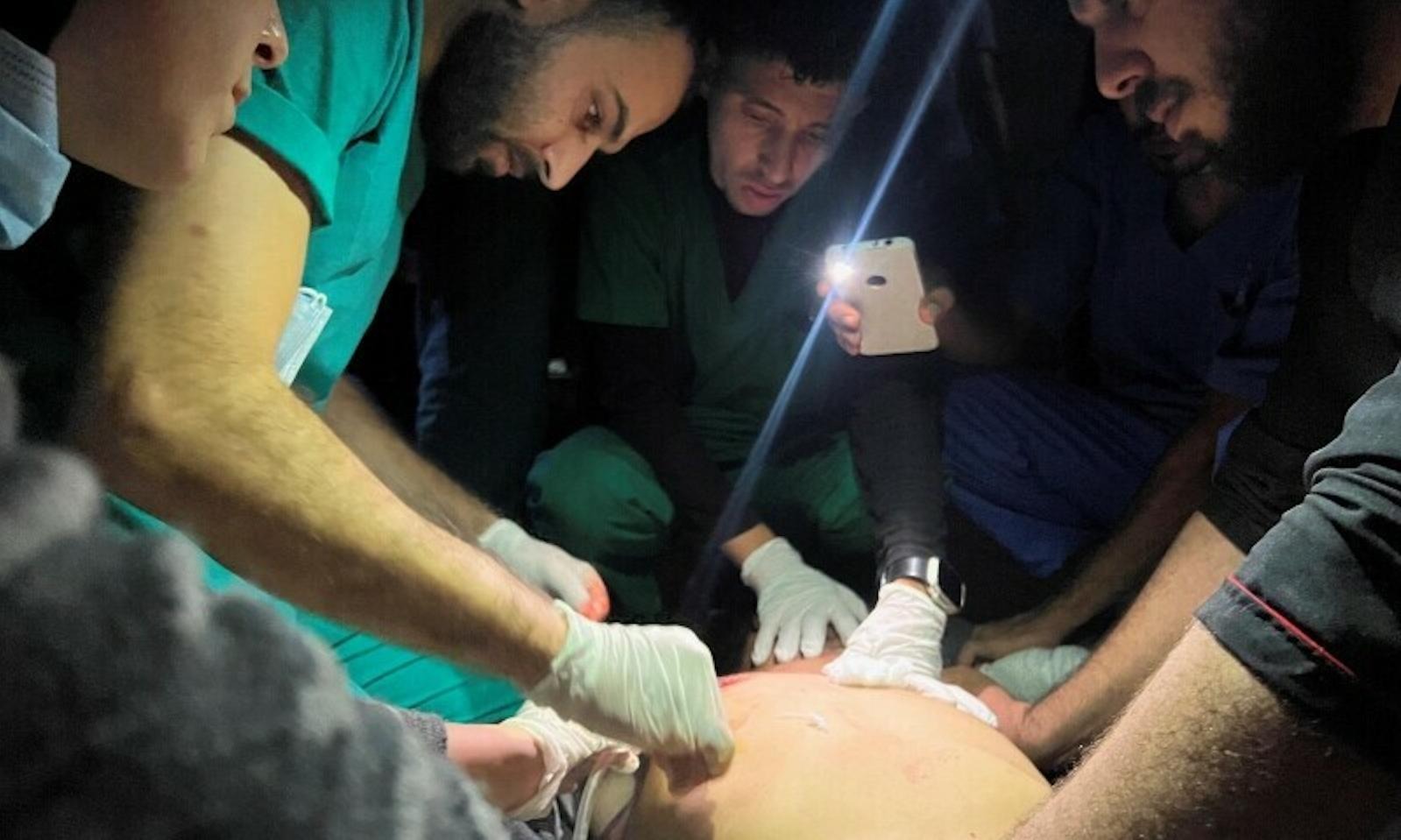A compulsion gripped me when the first wave of military assaults subsided: duty, desperation, or, perhaps, both. Rumors spread of patients abandoned in ghostly hospitals emptied of doctors. Drawn by these whispers, I made my way to one such hospital, the Indonesian Hospital in northern Gaza.
When I crossed its threshold, the title “physician” felt absurd in the face of what I saw. Patients lay crammed into every corridor. Children burned with fevers. The elderly murmured prayers half-lost to delirium. We performed surgeries with shaking hands, improvising with tools and techniques from scraps of memory. Medical students, wide-eyed and trembling, were pressed into decisions that no textbook had ever prepared them for. Supplies waned to cruel mirages, scalpel blades dulled, bandages became rags, and the last bottles of medicine sat like artifacts of a vanished world.
My colleagues and I fueled ourselves with IV glucose, pinching lines closed with trembling fingers just to stay upright another hour.
Then came the bombing of the Al-Ahli Arab Hospital, an act so brazen it seemed to tear a hole in the very idea of sanctuary. We received its injured staff and patients, their eyes reflecting a horror beyond words. That day, I sutured the scalp and eyelid of an eight-year-old girl without anesthesia. My hands trembled not from inexperience but from the sheer totality of everything war strips away: painkillers, antiseptics, dignity, humanity.
Amputations became grim necessities performed on hospital floors. We rinsed the blades in water barely clean enough to drink.
Eight months passed like this, though “passed” feels too linear a word. They blurred, marked not by calendars but by the rhythm of bombs.
Occupation forces attacked our fragile outpost again and again until it was too dangerous to occupy. Our evacuation was sudden, quiet, and irreversible, a funeral with no eulogy.
My family and I, homeless and weary, fled to three separate shelters in one week before finding a school hastily converted into a refuge. Its classrooms, once brimming with children’s laughter, became impromptu clinics. I set broken bones under flickering lamps and pressed gauze to gaping wounds in janitors’ closets.
Travelling to any hospital in the north was impossible. The roads had become graveyards for ambulances. Israeli forces hunted medical staff as though healing itself were an act of resistance.
When I finally found work at another hospital, it was a hospital in name only. Patients died not because their injuries were beyond repair, but because we had no sutures to stop the bleeding. Amputations, abdominal surgeries, everything was done without anesthetics. Pain was not a side effect; it was the procedure.
Outside the hospital walls, suffering bled into every corner of life. Clean water dwindled to rumor. Food rations were distributed with the finality of a death sentence. Infections flourished like wild vines in the fertile soil of neglect. Skin diseases crawled across the populace in grotesque patterns that echoed the shattered geometry of our buildings. Surviving from one dawn to the next became a quiet rebellion, a refusal to surrender to the machine grinding us down.
For those of us still trapped in this spiral, the word “emergency” has lost its meaning. Life is a labyrinth with no exit, a place one can neither escape nor name.
I do not pen these words in the hope of reprieve nor do I hold out for justice to descend from the heavens. In Gaza, justice sleeps beneath the rubble and reason dissolves in the echo of artillery fire. All that remains is the stubborn will to exist, to breathe, to care for one another in defiant acts of tenderness.
Perhaps this is the inexplicable wonder of Gaza: that amid a ceaseless storm of cruelty, the will to live endures. Like the ancient olive trees rooted in battered soil, we refuse, against all odds, to surrender our fruit.
Dr. Ezzideen Shehab is the founder of Al-Rahma Medical Center, which provides free medical care to patients in North Gaza. He is based in Jabalia, near Gaza City. Please donate to his fundraiser for medical services in Gaza here.


